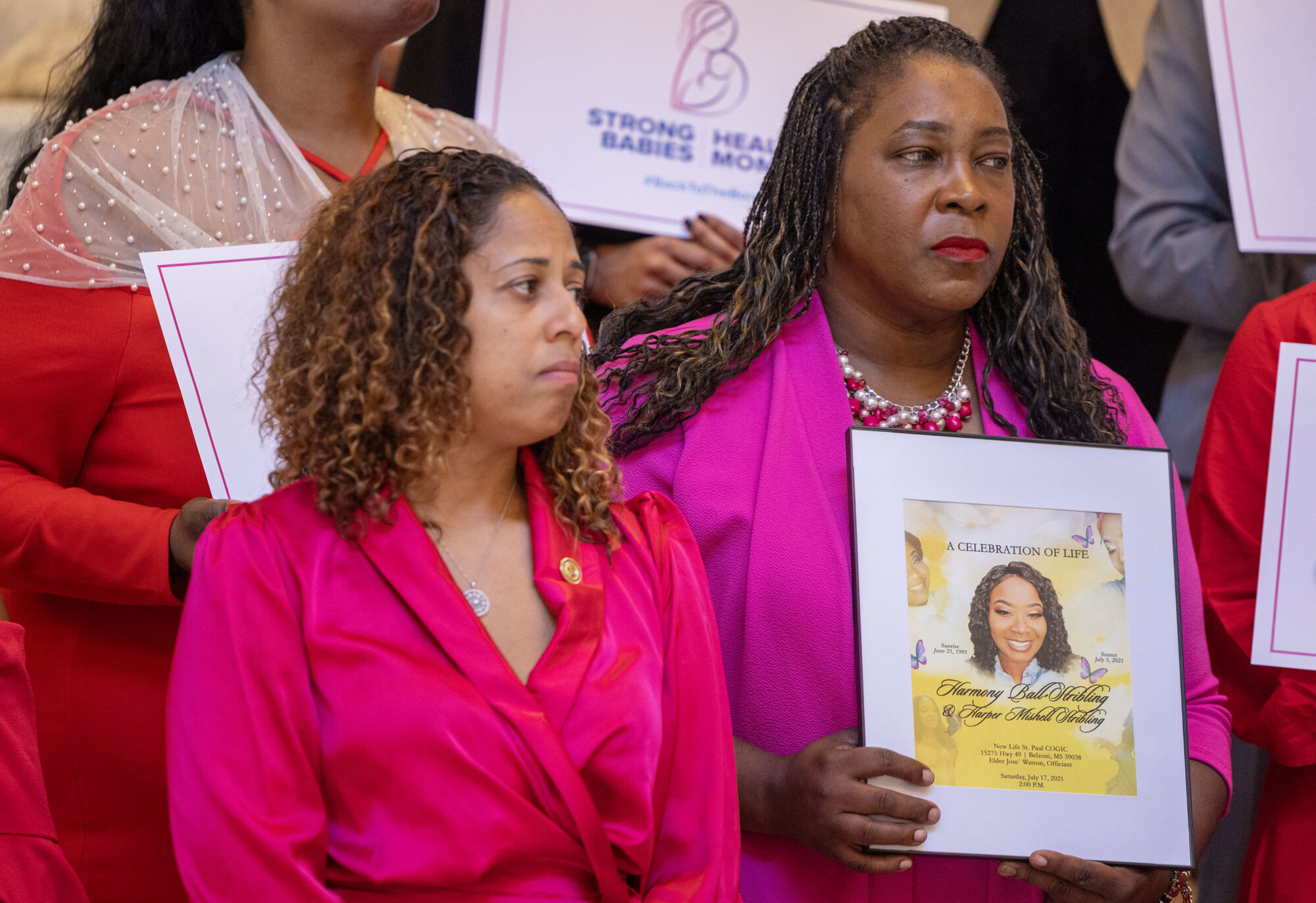Mississippi Today
State Health Department was unaware a hospital had closed, a proposed rule change could keep that from happening again


Hospitals must give a 30-day notice about closure or the discontinuing of services, under a Mississippi State Department of Health proposed rule.
News of the proposed change came after Mississippi Today sought answers about the closing of Patient’s Choice Medical Center of Smith County in Raleigh, which was at the time still listed as open on the Health Department’s facilities directory.
The Health Department said the proposal is not related to any specific situation.
While the Health Department for some time has required facilities to notify the agency of a complete facility closure under Rule 41.5.1, the proposed revision seeks to improve communication and maintenance of records, according to the department.
“The new requirement for notification of closure of service lines is to ensure MSDH has visibility of closures that could impact patient care within the state,” the Office of Licensure at the state Health Department told Mississippi Today via email.
The proposed amendment will be on the agenda at the State Board of Health meeting in October.
According to the state Health Department’s Office of Licensure, Patient’s Choice did not notify the department of its closing.
The licensure office told Mississippi Today that when state health inspectors arrived at Patient’s Choice to do a survey on May 15, they found the building was no longer in use.

Patient’s Choice has sat empty for over three months, but it could reopen under new management.
Gregg Gibbes, president and chief executive officer at South Central Regional Medical Center in Laurel, told Mississippi Today in August he was eager to discuss the circumstances surrounding Patient’s Choice.
“That’s gonna be one of the biggest healthcare news stories this year. It’s very exciting,” Gibbes said.
When Mississippi Today reached out to Gibbes days later for further clarification, he wouldn’t answer any questions.
Over the past four years, Gibbes has served as CEO and administrator at Simpson General Hospital (2020), Magee General Hospital in Mendenhall (2019) and Collins-based Covington County Hospital (2016).
All three hospitals fall under the South Central Regional Medical Center’s partnership with multiple rural community hospitals in the state’s south-central region, according to a news release from South Central Regional Medical Center.
In late July 2023, before the Health Department updated its Directory of Mississippi Facilities removing Patient’s Choice, the hospital was listed as having 29 general acute care beds, 10 of which were in a geriatric psychiatric unit.
Any more specifics about what services were offered or changes in services would have to come from the facility itself, the state Health Department said.
Mississippi Today reached out to a doctor and worker who were employed at the hospital during the administration of the late Paulette Butler. Both declined to speak about the services offered at Patient’s Choice or other questions related to the facility.
Mississippi Today also reached out three times to a former chief executive officer at the facility, Tim Cockrell, but he was not available for comment before publication. Mississippi Today also could not reach the facility’s current owner, Robert Hall. No current contact number was available.
Based on the Office of Licensure records, the facility voluntarily terminated its Medicare certification on July 3, 2023.
To understand the medical center’s conditions before it officially closed Mississippi Today obtained from the state Health Department the three most recent inspection reports for Patient’s Choice Medical Center, dated 2019, 2015 and 2011.
The facility was initially assessed as not up to code in the 2011 and 2019 reports. The inspection in between, in 2015, found it in compliance. In July 2015, the facility was noted as in compliance with the Medicare Conditions of Participation for Mississippi Hospitals after a Medicare recertification survey was conducted.
According to the 2019 inspection report, the last one done of the hospital, the human resources director said there were four rooms used for acute care patients and 13 rooms had not been in use since 2014. The director also told inspectors that the acute care floor was shut down in May 2019 and not in use.
The facility also had a senior care floor, according to the inspection report.
The report stated that a registered nurse “confirmed no call lights were operable in any of the senior care patient rooms and maintenance is aware.”
Once Patient’s Choice provided a plan of correction addressing all deficiencies, the state Department of Health dated the corrections as completed no more than a month later.
In August 2011, the report documented the facility was deemed not up to code for reasons including incomplete patient documentation, storage of expired medications and a failed fire alarm system in the senior care unit. After getting up to compliance, a letter dated in November 2011 was sent to the chief executive officer finding the facility’s “credible allegation of compliance for its Medicare deficiencies has been found acceptable.”
For now, talks with the potential new management to take over the hospital are in limbo, said District 3 Smith County Supervisor Benjie Ford.
“It’ll be close to November or December before they ever give us an update on what’s going on,” Ford said.
According to September records, the Health Department’s Division of Health Planning and Resource Development has no certificate of need application in process for Patient’s Choice to reopen.
This article first appeared on Mississippi Today and is republished here under a Creative Commons license.
Mississippi Today
On this day in 1947, Jackie Robinson broke MLB color barrier

April 15, 1947

Jackie Robinson broke through the color barrier in Major League Baseball, becoming the first Black player in the 20th century.
Born in Cairo, Georgia, Robinson lettered in four sports at UCLA – football, basketball, baseball and track. After time in the military, he played for the Kansas City Monarchs in the Negro Leagues. After his success there, Dodgers general manager Branch Rickey signed Robinson, and the legendary baseball player started for Montreal, where he integrated the International League.
In addition to his Hall of Fame career, he was active in the civil rights movement and became the first Black TV analyst in Major League Baseball and the first Black vice president of a major American corporation.
In recognition of his achievements, Robinson was posthumously awarded the Presidential Medal of Freedom and the Congressional Gold Medal.
Major League Baseball retired his number “42,” which became the title of the movie about his breakthrough.
Ken Burns’ four-hour documentary reveals that Robinson did more than just break the color barrier — he became a leader for equal rights for all Americans.
This article first appeared on Mississippi Today and is republished here under a Creative Commons Attribution-NoDerivatives 4.0 International License.![]()
Mississippi Today
Mississippians highlight Black Maternal Health Week

Advocates and health care leaders joined lawmakers Monday morning at the Capitol to recognize Black Maternal Health Week, which started Friday.
The group was highlighting the racial disparities that persist in the delivery room, with Black women three times more likely to die of a pregnancy-related cause than white women.
“The bond between a mother and her baby is worth protecting,” said Cassandra Welchlin, executive director of the Mississippi Black Women’s Roundtable.
Rep. Timaka James-Jones, D-Belzoni, spoke about her niece Harmony, who suffered from preeclampsia and died on the side of the road in 2021 along with her unborn baby, three miles from the closest hospital in Yazoo City.
“It’s utterly important that stories are shared – but realize these are not just stories. This is real life,” she said.
The tragedy inspired James-Jones to become a lawmaker. She says she is working on gaining support to appropriate the funds needed to build a standalone emergency room in Belzoni.
But it isn’t just emergency medical care that’s lacking for some mothers. Mental health conditions are a leading cause of pregnancy-related deaths, defined as deaths up to one year postpartum from associated causes.
And more than 80% of pregnancy-related deaths are deemed preventable – making the issue ripe for policy change, advocates said.
“About 20 years ago, I was almost a statistic,” said Lauren Jones, a mother who founded Mom.Me, a nonprofit seeking to normalize the struggles of motherhood through community support. “I contemplated taking my life, I severely suffered from postpartum depression … None of my physicians told me that the head is connected to the body while pregnant.”
With studies showing “mounting disparities” in women’s health across the United States – and Mississippi scoring among the worst overall – more action is needed to halt and reverse the inequities, those at the press conference said.
The Mississippi Legislature passed four bills related to maternal health between 2018 and 2023, according to a study by researchers at the University of Mississippi Medical Center.
“How many times are we going to have to come before committees like this to share the statistics before the statistics become a solution?” Jones asked.
A bill that would require health care providers to offer postpartum depression screenings to mothers is pending approval from the governor.
Rep. Zakiya Summers, D-Jackson, the organizer of the press conference, commended the Legislature for passing presumptive eligibility for pregnant women this year. The policy will allow women to receive health care covered by Medicaid as soon as they find out they are pregnant – even if their Medicaid application is still pending. It was spearheaded by Rep. Missy McGee, R-Hattiesburg.
Summers also thanked Rep. Kevin Felsher, R-Biloxi, for pushing paid parental leave for state employees through the finish line this year.
Speakers emphasized the importance of focusing Black Maternal Health Week not just on mitigating deaths but on celebrating one of life’s most vulnerable and meaningful events.
“Black Maternal Health Week is a celebration of life, since Black women don’t often get those opportunities to celebrate,” said Nakeitra Burse, executive director of Six Dimensions, a minority women-owned public health research agency. “We go into our labor and delivery and pregnancy with fear – of the unknown, fear of how we’ll be taken care of, and just overall uncertainty about the outcomes.”
This article first appeared on Mississippi Today and is republished here under a Creative Commons Attribution-NoDerivatives 4.0 International License.![]()
Mississippi Today
Trump to appoint two Northern District MS judges after Aycock takes senior status

President Donald Trump can now appoint two new judges to the federal bench in the Northern District of Mississippi.
U.S. District Judge Sharion Aycock announced recently that she was taking senior status effective April 15. This means she will still hear cases as a judge but will have a reduced caseload.
“I have been so fortunate during my entire legal career,” Aycock said in a statement. “As one of only a few women graduating in my law school class, I had the chance to break ground for the female practitioner.”
A native of Itawamba County, Aycock graduated from Tremont High School and Mississippi State University. She received her law degree from Mississippi College, where she graduated second in her class.
Throughout her legal career, she blazed many trails for women practicing law and female jurists. She began her career as a judge when she was elected as a Mississippi Circuit Court judge in northeast Mississippi in 2002, the first woman ever elected to that judicial district.
She held that position until President George W. Bush in 2007 appointed her to the federal bench. After the U.S. Senate unanimously confirmed her, she became the first woman confirmed to the federal judiciary in Mississippi.
This makes Aycock the second judge to take senior status in four years. U.S. District Judge Michael Mills announced in 2021 that he was taking senior status, but the U.S. Senate still has not confirmed someone to replace him.
President Joe Biden appointed state prosecutor Scott Colom to fill Mills’ vacancy in 2023. U.S. Sen. Roger Wicker approved Colom’s appointment, but U.S. Sen. Cindy Hyde-Smith blocked his confirmation through a practice known as “blue slips,” where senators can block the confirmation of judicial appointees in their home state.
This means President Trump will now have the opportunity to appoint two federal judges to lifetime appointments to the Northern District. U.S. District Judge Debra Brown will soon be the only active federal judge serving in the district. Aycock, Mills, and U.S. District Judge Glen Davidson will all be senior-status judges.
Federal district judges provide crucial work to the federal courts through presiding over major criminal and civil trials and applying rulings from the U.S. Supreme Court and the U.S. Court of Appeals in the local districts.
This article first appeared on Mississippi Today and is republished here under a Creative Commons Attribution-NoDerivatives 4.0 International License.![]()
-

 News from the South - Arkansas News Feed6 days ago
News from the South - Arkansas News Feed6 days agoMeasles cases confirmed in Arkansas children after travel exposure
-

 Mississippi Today7 days ago
Mississippi Today7 days agoProgram helps students with disabilities forge paths to careers
-

 News from the South - North Carolina News Feed7 days ago
News from the South - North Carolina News Feed7 days agoTax Day of April 15 is essentially May 1 in North Carolina | North Carolina
-

 Mississippi Today6 days ago
Mississippi Today6 days agoA self-proclaimed ‘loose electron’ journeys through Jackson’s political class
-

 News from the South - Alabama News Feed5 days ago
News from the South - Alabama News Feed5 days agoImpacts of Overdraft Fees | April 11, 2025 | News 19 at 10 p.m.
-

 News from the South - Missouri News Feed7 days ago
News from the South - Missouri News Feed7 days agoSleeping 14-year-old critically injured by bullet in Ferguson home; father flees scene
-

 News from the South - Tennessee News Feed7 days ago
News from the South - Tennessee News Feed7 days agoQuestions mount over federal drug discount program | Tennessee
-

 News from the South - Alabama News Feed6 days ago
News from the South - Alabama News Feed6 days agoPilot Speaks on Helicopter Crash | April 10, 2025 | News 19 at 10 p.m.

















































